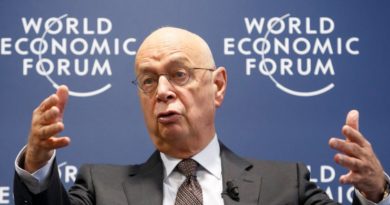2020 Pitted Bitcoin Against The Great Reset
2020 was unforgettable, especially for Bitcoin. To help memorialize this year for our readers, we asked our network of contributors to reflect on Bitcoin’s price action, technological development, community growth and more in 2020, and to reflect on what all of this might mean for 2021. These writers responded with a collection of thoughtful and thought-provoking articles. Click here to read all of the stories from our End Of Year 2020 Series.
2020 has become the year of pandemic. With facemasks and quarantine becoming a new normal, the world has changed forever. In the escalation of the coronavirus outbreak, the U.S. Federal Reserve lowered its interest rate to near zero for the first time since the global financial crisis more than a decade ago.
With lockdown measures creating job losses and the contraction of the economy, the government’s response to COVID-19 revived the memories of the 2008 crash. Wall Street bank bailouts then created a large transfer of wealth. This now continues, with the closing down of the economy destroying mom-and-pop shops while corporations like Walmart, Amazon and Target are making record breaking profits.
Bitcoin, which was born in the ashes of economic meltdown, was a response to the corruption of financial institutions. Its white paper saw its 12-year anniversary this year. As the old system began to unravel, Bitcoin further unveiled its deeper value proposition.
Dedollarization
The invention of Bitcoin made the separation of money and state possible for the first time in history. The cypherpunks’ project of creating electronic cash free from a central authority quickly won the hearts of hackers and anarchists. Recognizing bitcoin as a new asset class akin to an non-confiscatable digital gold, libertarians and venture capital came on board as well.
Waves of early adopters of this technology have emerged on the margins of the U.S. Empire. From Venezuelans and Iranians to WikiLeaks, the uncensorable free speech money became a safe haven for those who wish to escape hyperinflation, sanctions and financial blockade.
This year, this decentralized digital currency has welcomed new faces. Responding to the Federal Reserve’s inflation policy, corporations and public companies have begun adding bitcoin to their balance sheets to hedge against the U.S. dollar. In September, MicroStrategy became one of the first and largest Nasdaq-listed companies to embrace bitcoin, purchasing over $425 million worth. This has created a ripple effect in the merchant network, bringing Square’s Cash App and PayPal into the crypto space.
In the wake of the U.S. presidential election, bitcoin’s price exceeded its previous all-time high from the end of the 2017 bull run. With S&P Dow Jones Indices’ announcement of the launching of cryptocurrency indexes in 2021, and Massachusetts Mutual Life Insurance Co.’s purchase of $100 million in bitcoin, Bitcoin has continued to gain mainstream acceptance, making prosperous news headlines in mainstream media.
The Global Reset
As the loss of confidence in the U.S. economy accelerates de-dollarization, leading global institutions have stepped forward. Halfway through this year, the World Economic Forum (WEF) announced a plan to develop a “Great Reset” to emerge as a better world from the COVID-19 crisis.
WEF, together with the United Nations, business sectors and civil society, aims to build the foundations of the economic system and institute a new social contract for a world population with the internet of things, and use of advanced technology.
In the announcement, Klaus Schwab, founder and executive chairman of WEF, stated that the goal is to create a more fair and sustainable future, bringing our life into harmony with nature. International Monetary Fund (IMF) Managing Director Kristalina Georgieva, who joined the initiative, articulated how the organization can help create a “greener, smarter, fairer world.”
In October, Georgieva solidified the IMF’s role in the Great Reset, calling for a new Bretton Woods moment; referring to the arrangement originally made in 1944 to centralize the world’s financial system with the U.S. dollar as reserve currency. The head of IMF urged international cooperation among the G20 to restructure sovereign debt. It is now preparing to roll out a central bank digital currency (CBDC) that has the capability to monitor and trace transactions, linking them to personal IDs with a record stored in a massive database.
Transhumanism
As international organizations seize the opportunity in the post-pandemic economy to reshape the world, defiance has emerged. Concerned citizens the world over have criticized the Great Reset as an effort to abolish personal ownership and property rights and undermine the sovereignty of nations and individuals. They see it as a dangerous move toward technocracy, creating a new digital empire with total surveillance and control.
Great Reset opponents go even further to call it a war on human nature with an end goal of creating a future without humanity. The Global Reset is backed by billionaires, the British royal family and politicians including the Canadian prime minister and Joe Biden. It is said to be an effort to transform global food, the human diet, worldwide hunger and disease, even to combat climate change.
The key idea behind this initiative is transhumanism. Klaus Schwab, founder and executive chairman of WEF, articulated in his book “The Fourth Industrial Revolution,” that transhumanism is a process that brings radical change in our lifestyle, opening a new chapter in human development. He described it as a vision toward a “fusion of our physical, digital and biological identity.”
The global elites with their patronage network of central banks around the world create money out of thin air. With their fake money, they pump up fake news, fueling the resource wars. Through synthetic biology that takes genetic engineering to the next level, they alter nature and create fake food. Working with a machine-learning algorithm, they are now trying to change human biology, making us all become artificial.
As the rise of AI and robots with the idea of merging man and machines brings up existential questions for humans, narratives of Bitcoin have moved into philosophical discussion. From freedom maximalist Robert Breedlove to Gigi, who writes words and code for Bitcoin, a gospel for a new era of individual sovereignty is being created.
Michael Saylor, chief executive of MicroStrategy, which joined the Bitcoin club this year, described money in terms of energies and noted how “Bitcoin is channeling human ingenuity into making it better.”
Long before the ecosystem went cosmic with memes bringing in new frequencies, the host of a popular financial report, Max Kaiser, called Bitcoin’s mysterious creator Satoshi a “cyber Christ.” This year, Keiser together with Stacy Herbert, raised spiritual vibrations by launching their new Orange Pill podcast.
Keiser, whom Saylor called “the high priest of Bitcoin” noted, “God’s fingerprints are all over Bitcoin.” Reacting to this new metaphysical dimension now being added to Bitcoin’s price discovery, a Bitcoiner tweeted:
Tapping into billionaire hedge fund manager Paul Tudor Jones who recently said, “A bet on Bitcoin is a bet on human ingenuity,” Keiser acknowledged Bitcoin as pro-humanity working for humans. He then defined the next phase of Bitcoin battle as “humans vs. AI.”
Call For Evolution
The new battlefield that is being drawn concerns the evolution of humanity. Aaron McCollum in his 2013 book “The Pandemic” described that transhumanists aim to “synthetically evolve the human race more rapidly than organic evolution allows” and to create “posthuman civilization, also referred to as Human 2.0.”
While the nation-state is being dismantled, creating chaos in the electoral arena, humanity is being locked down in a technologically-driven path of evolution. The incumbent power with its reliance on centralization tries to keep all species in bondage. As the machine steadfastly takes over the living world, a new algorithm is arising that carries within it the Book of Nature.
The innovation of computer science aligning human interests of all participants has begun to secure the future for humanity. Recognizing a new community of shared purpose being formed around this open-source software, crypto anarchist Erik Cason tweeted:
Responding to the impulse for evolution in the protocol, people around the world from all walks of life are coming together. There are economists, gold bugs, computer programmers, mothers, rabbis and entrepreneurs, all working to apply their own knowledge to solve problems.
As the year 2020 comes to an end, bitcoin, which has begun disrupting the power of central banks, giving humanity a chance to liberate themselves, soars to an all-time high. With Bitcoin, we can now opt-out of the upgrade of mankind dictated by the few and self determine a user-activated path of evolution. We can all unite as humans and HODL our intrinsic values coded in our own DNA.
Now, the future is in the hands of ordinary people. A network consensus of each individual’s chosen values builds blocks for a new civilization, defining what it means to be human.
This is a guest post by Nozomi Hayase. Opinions expressed are entirely their own and do not necessarily reflect those of BTC Inc or Bitcoin Magazine.
*** This article has been archived for your research. The original version from Bitcoin Magazine can be found here ***



